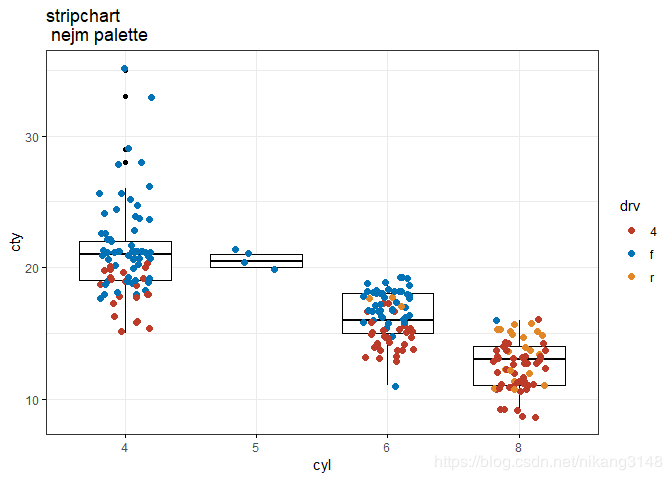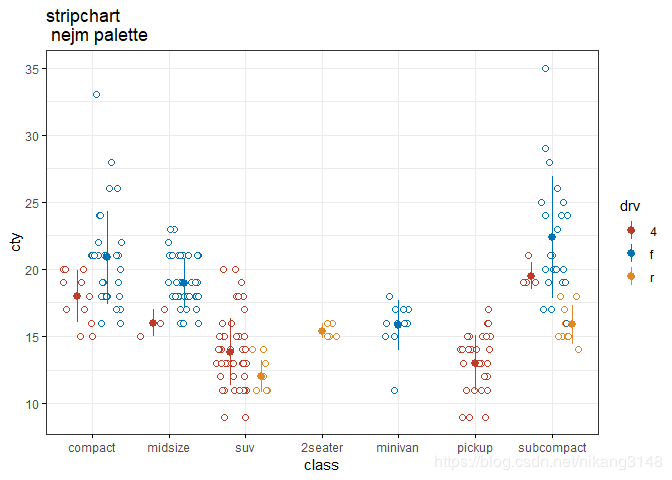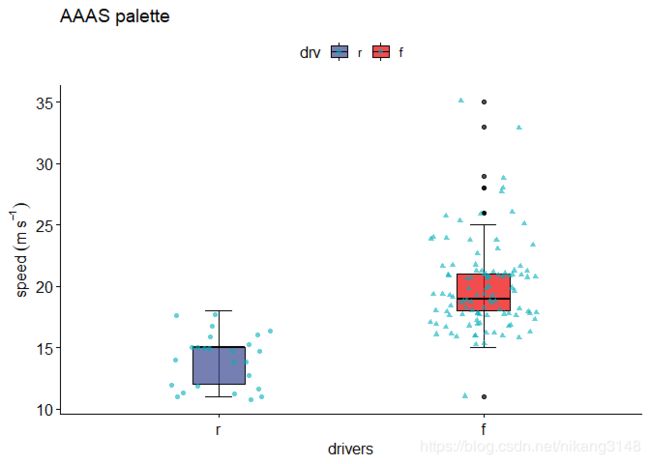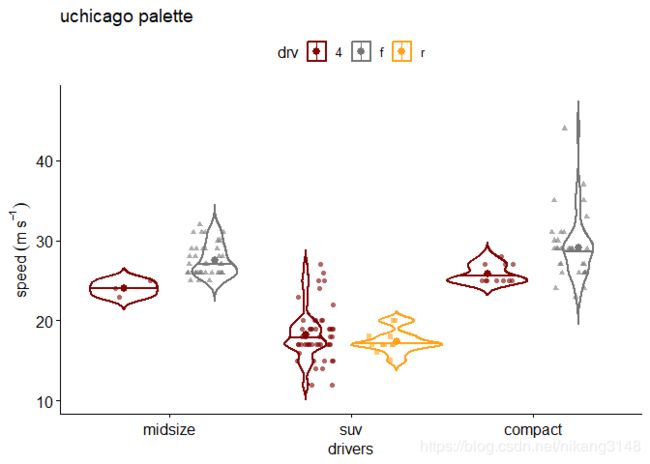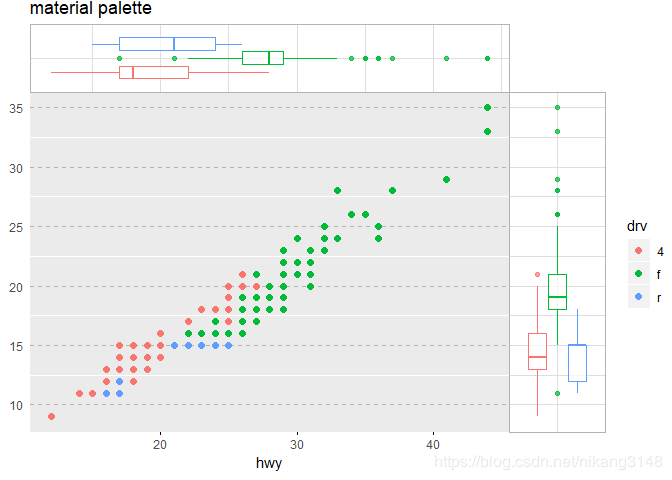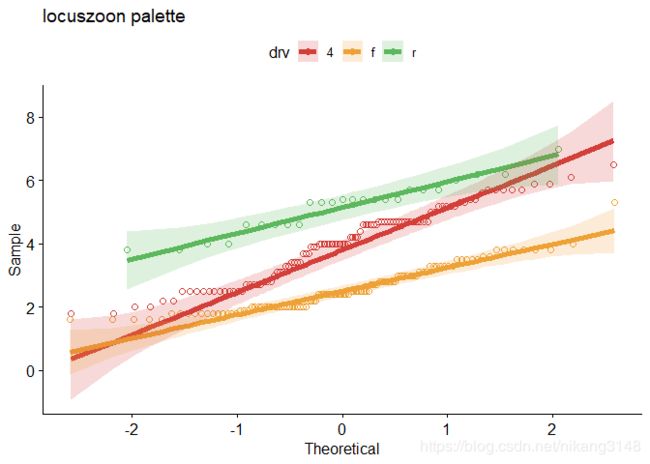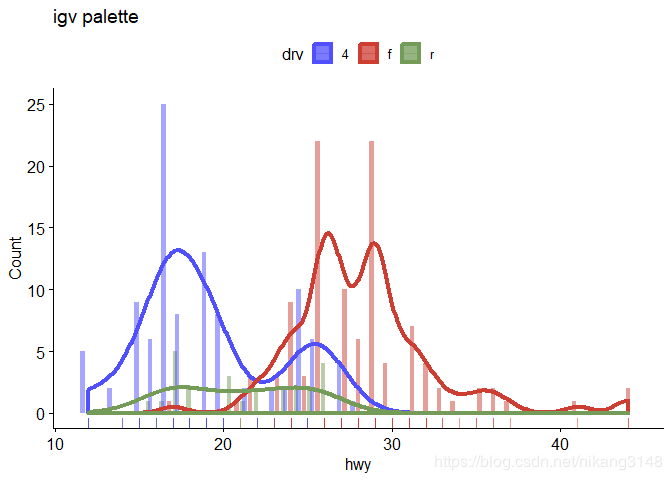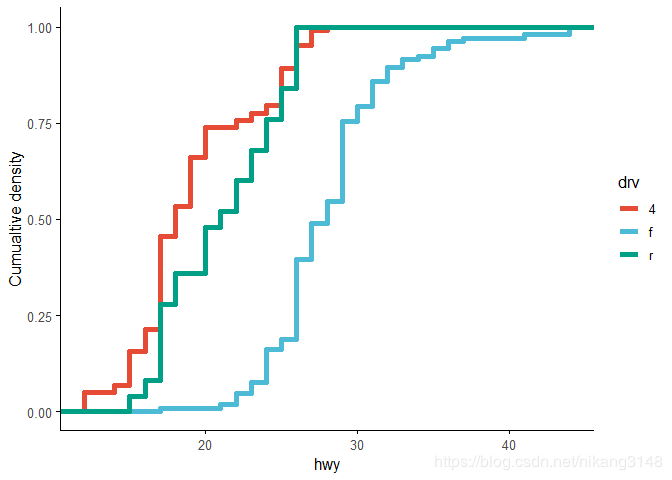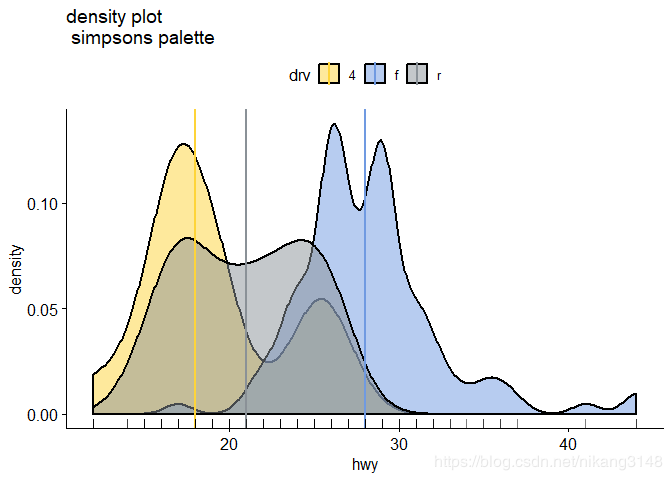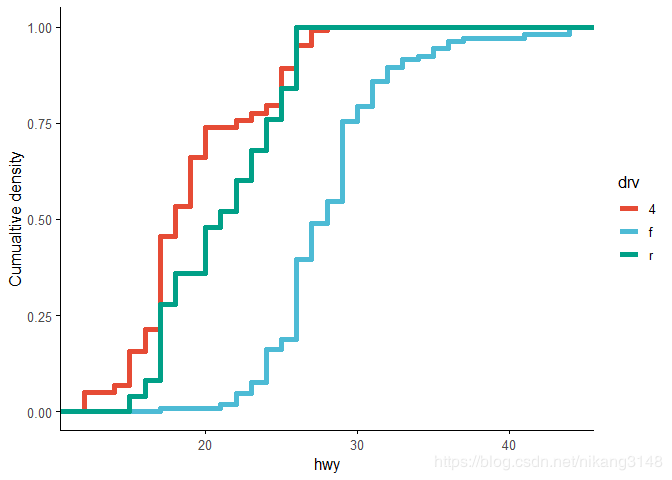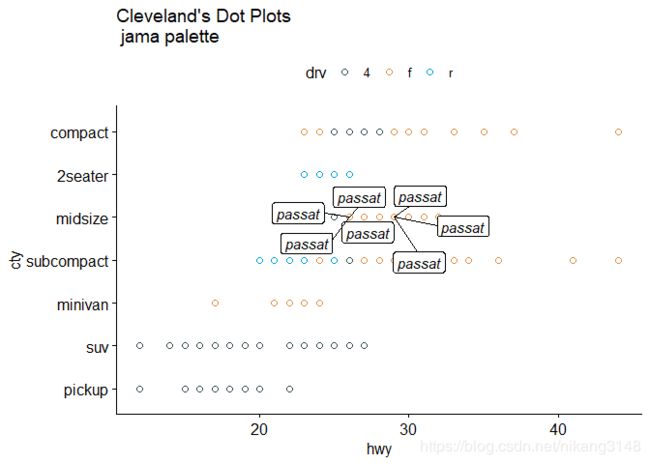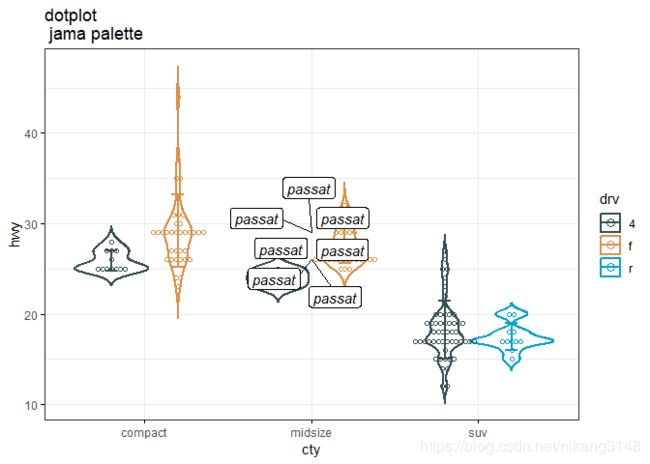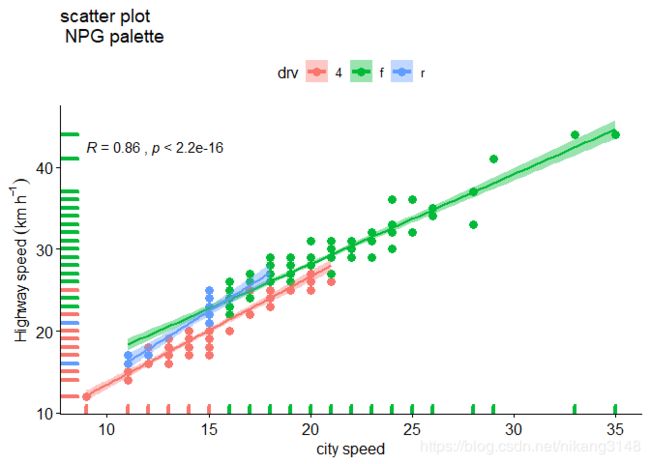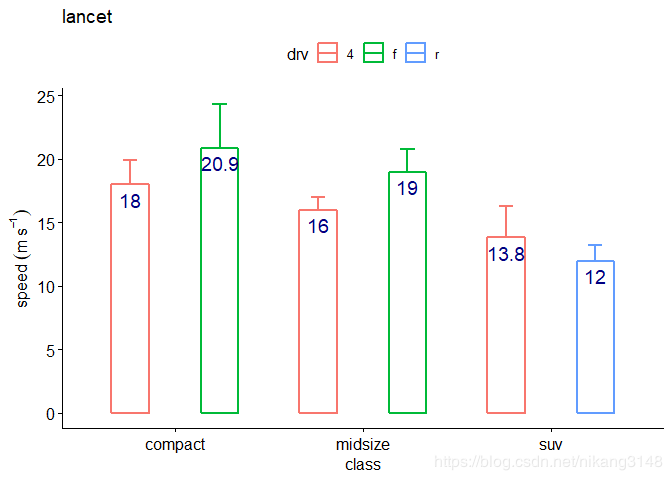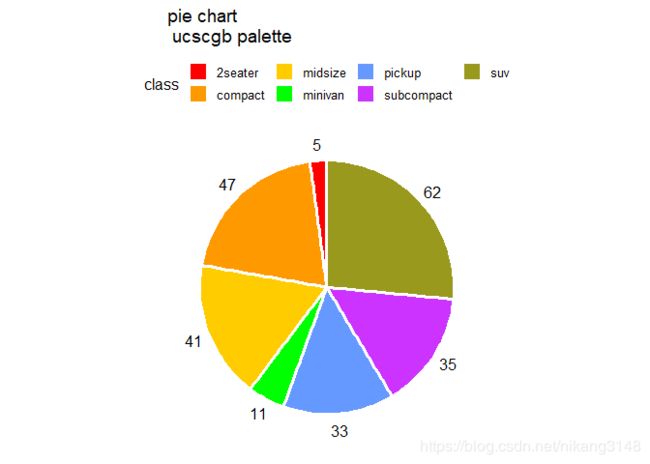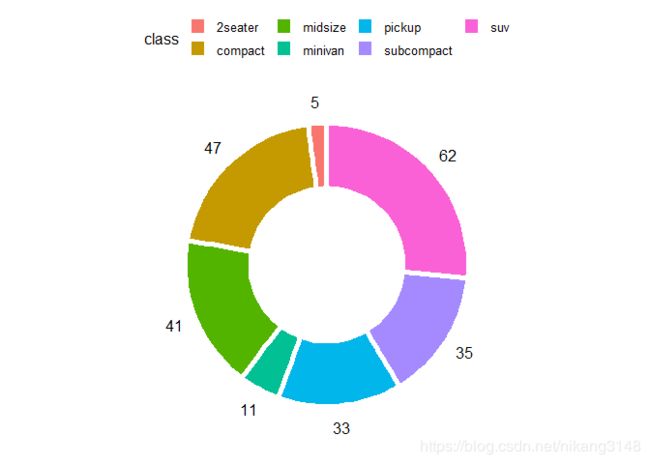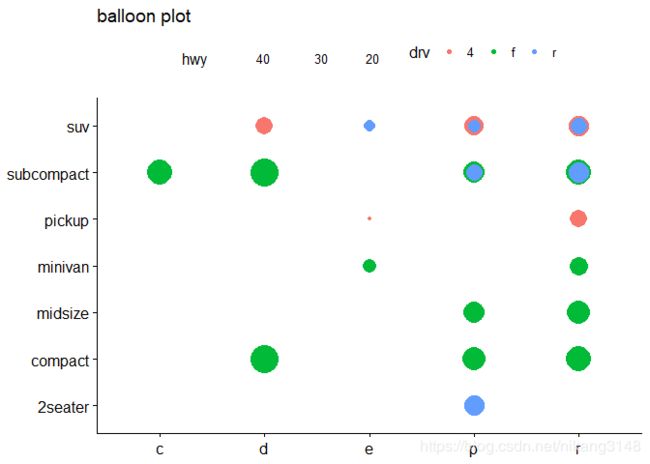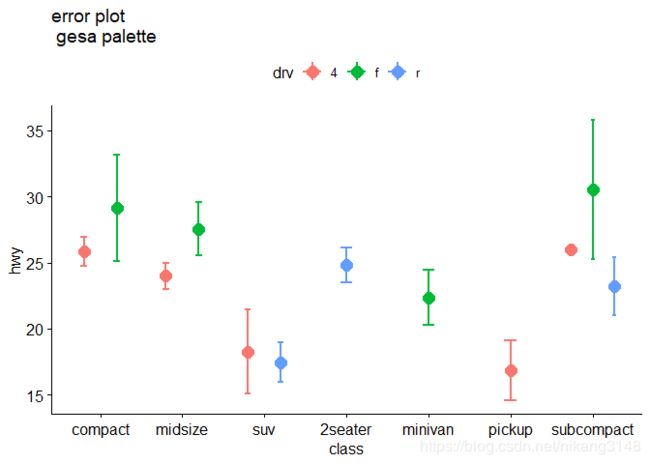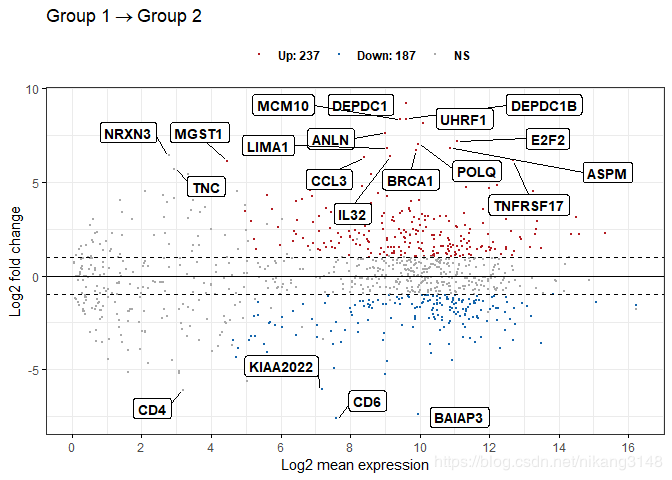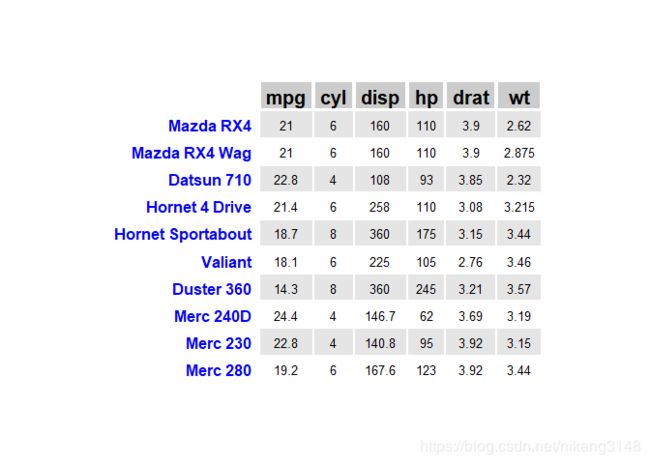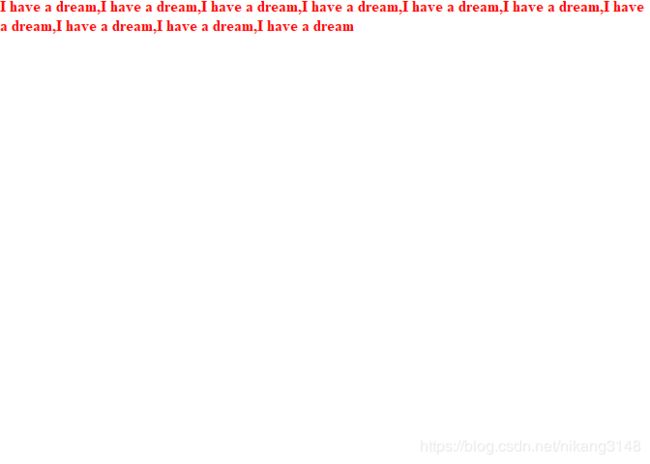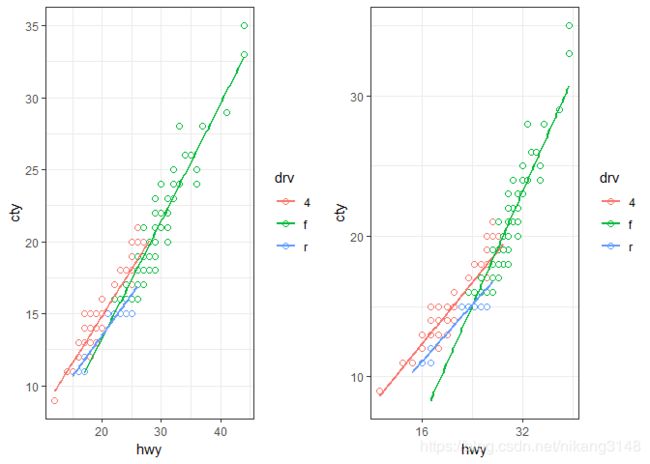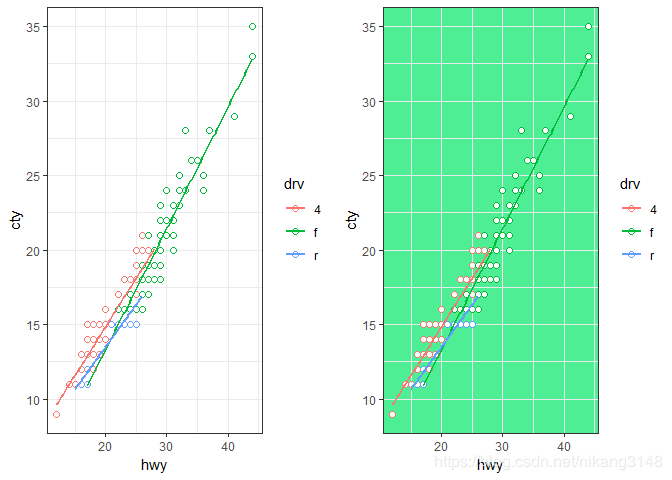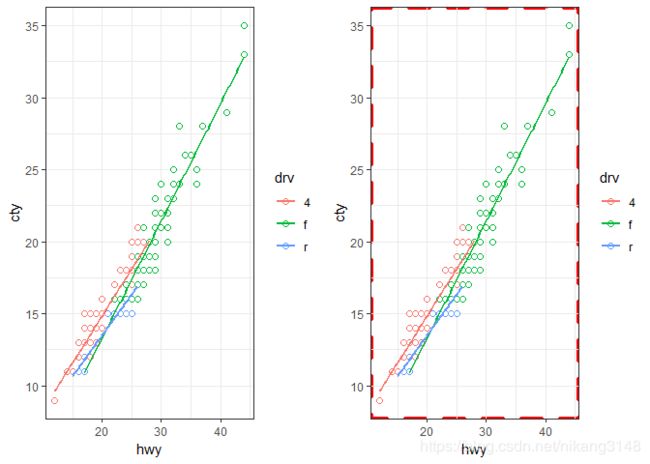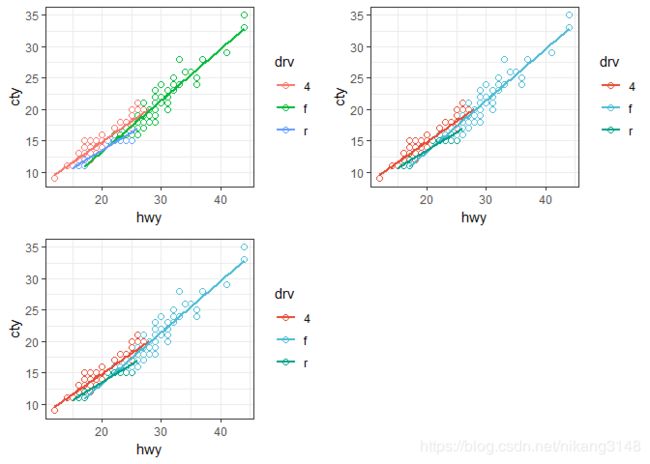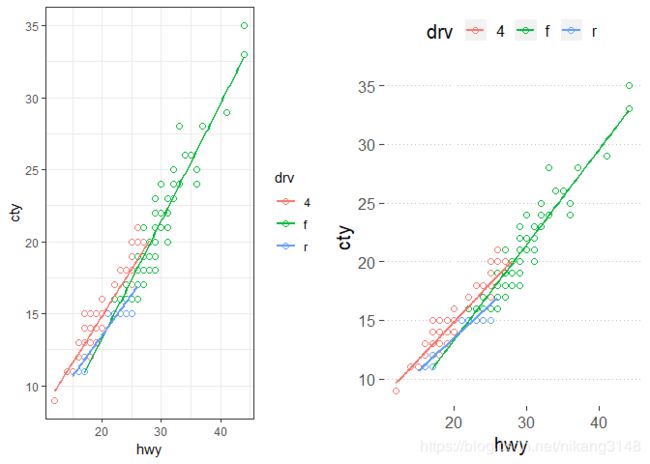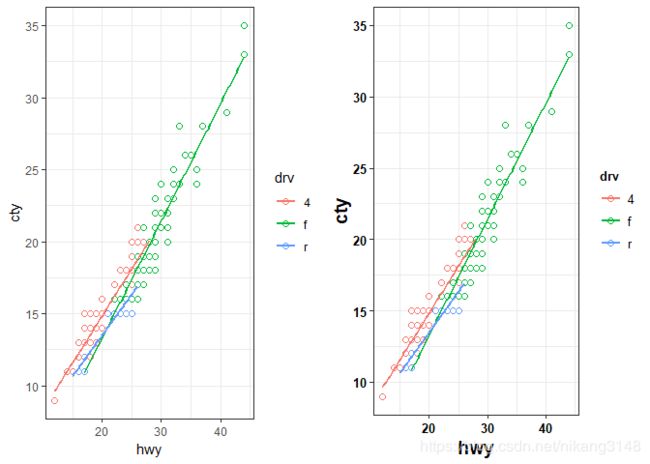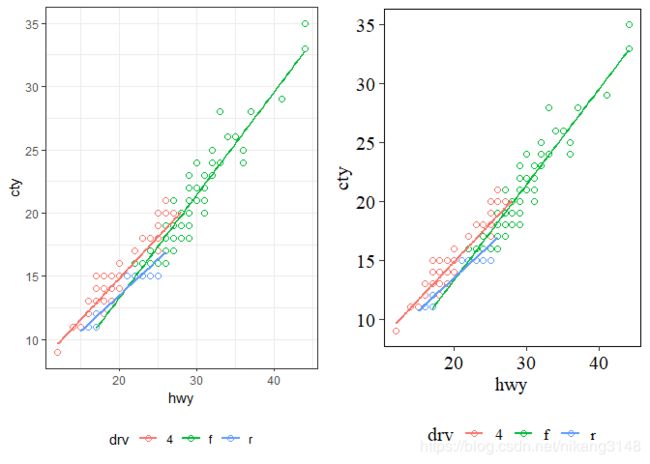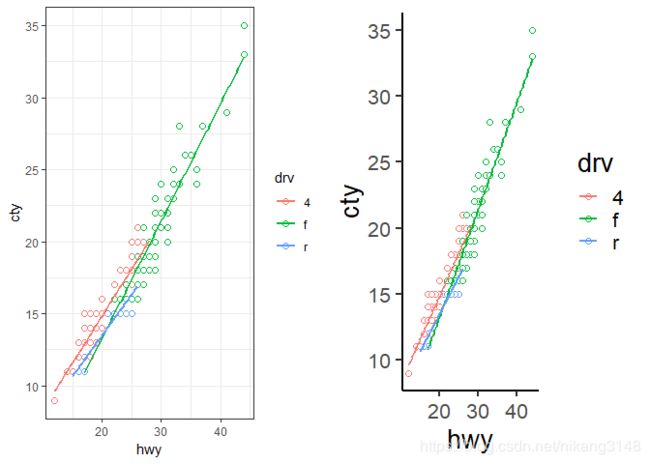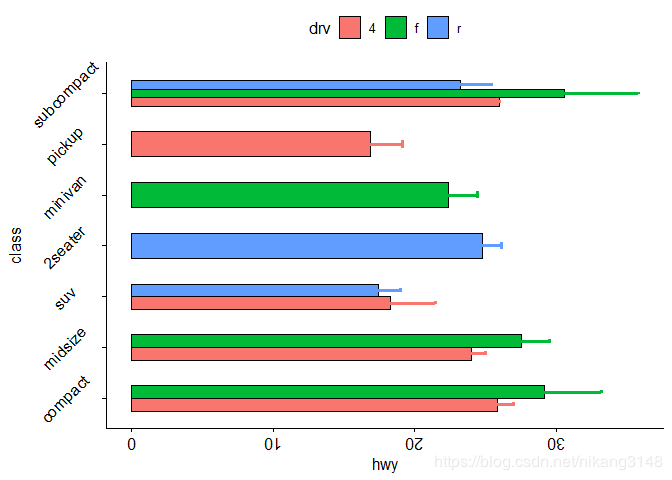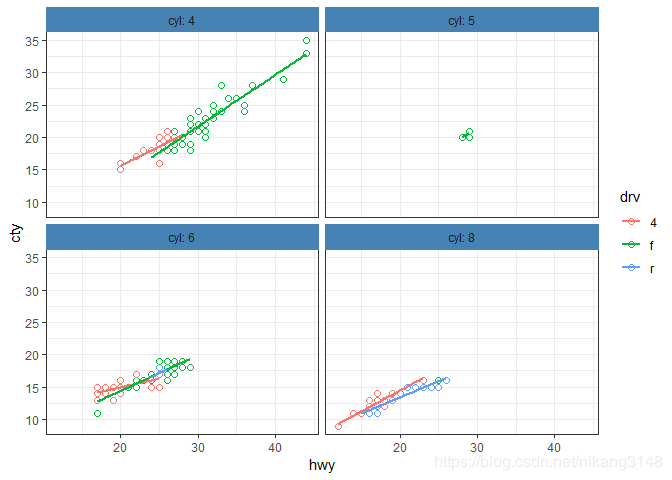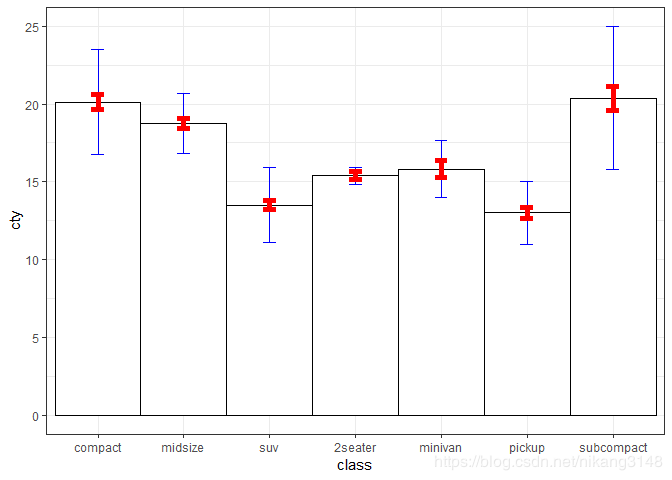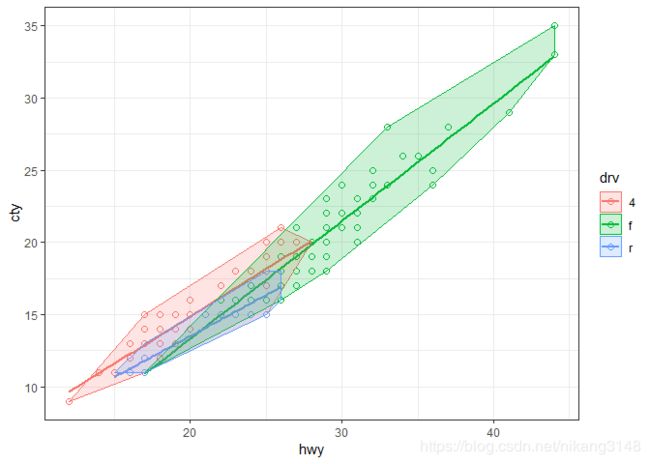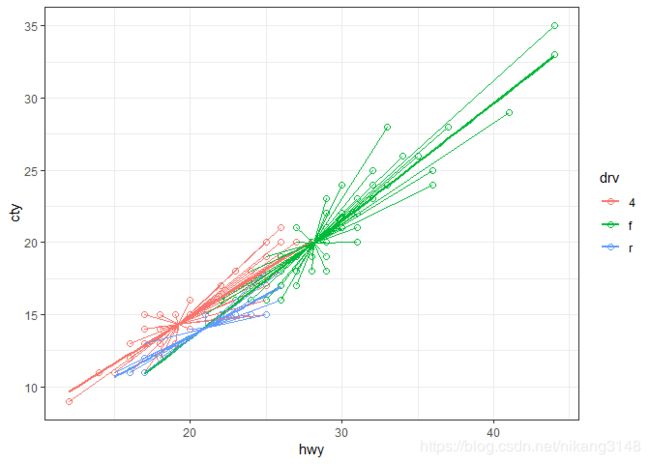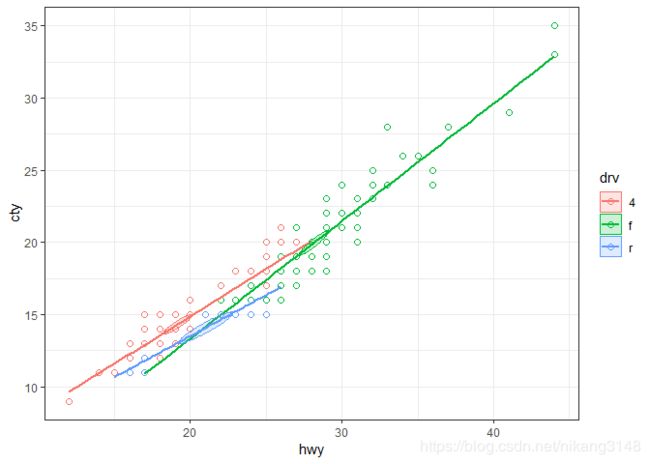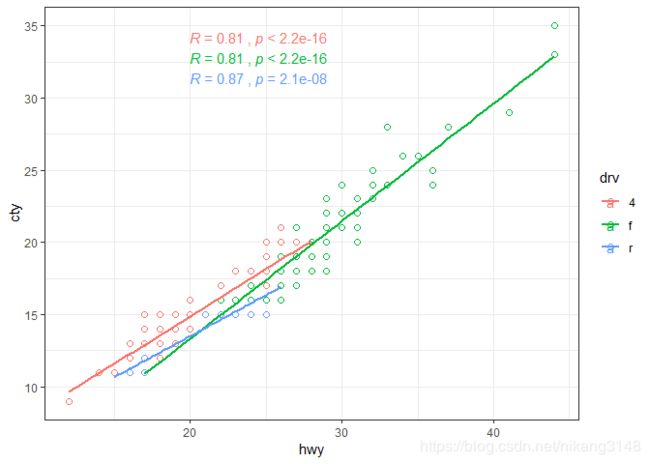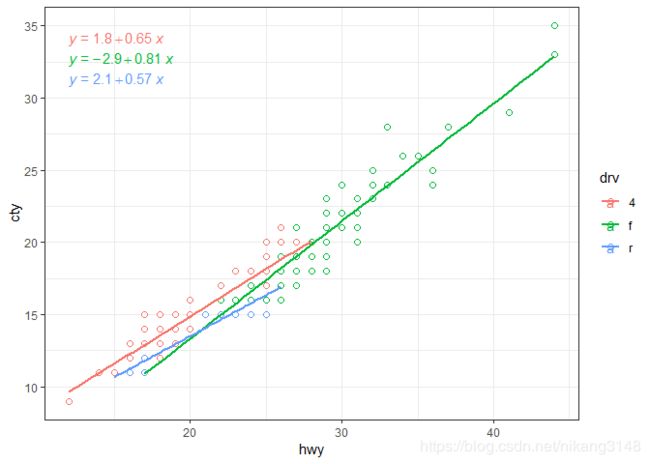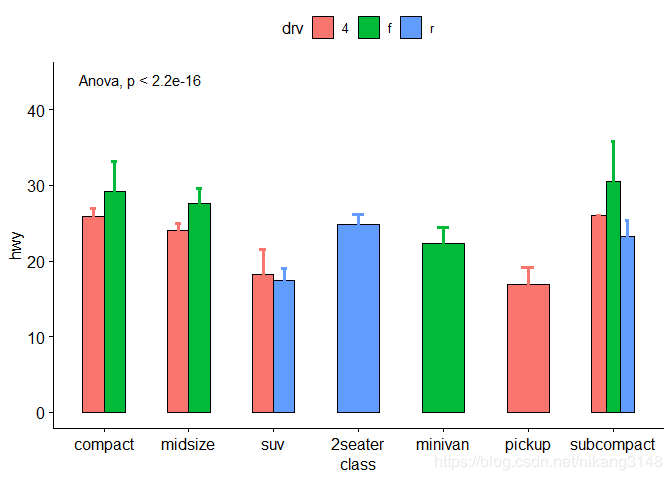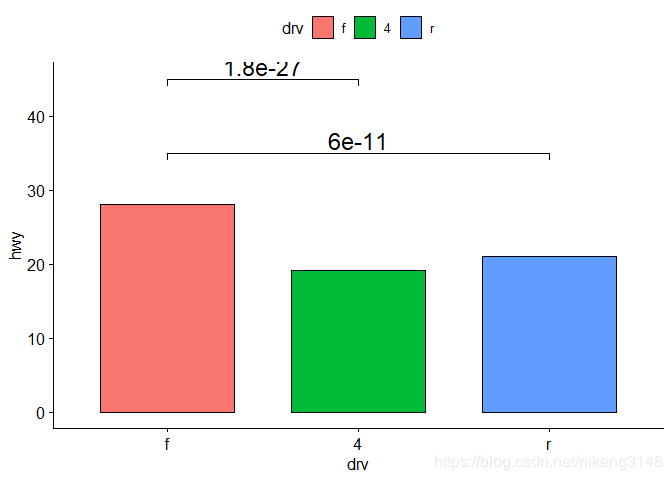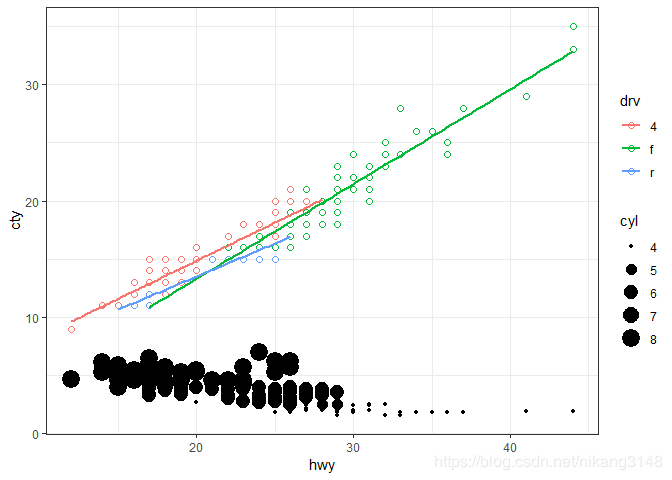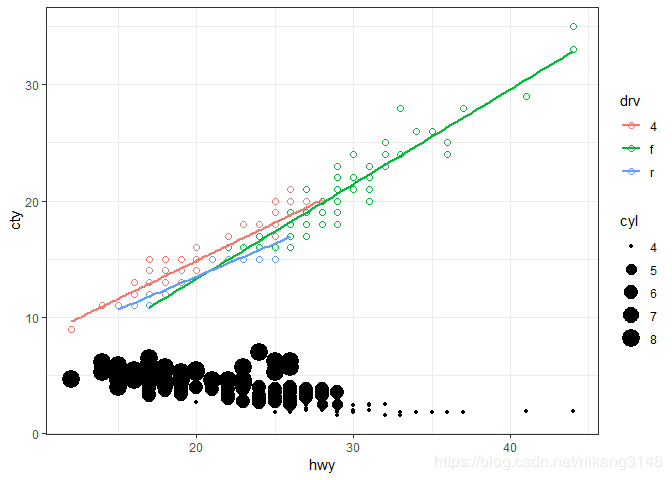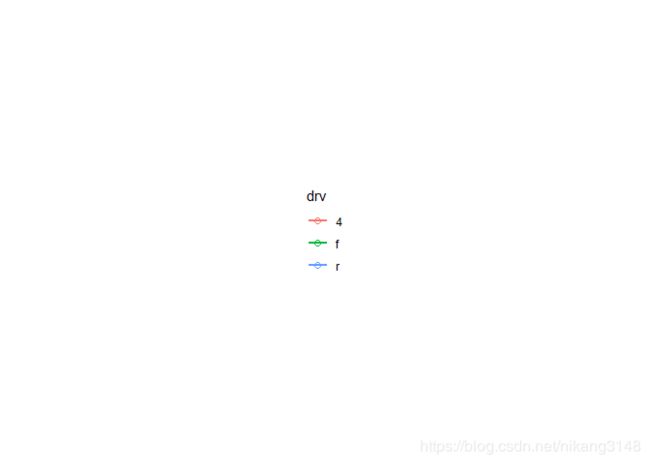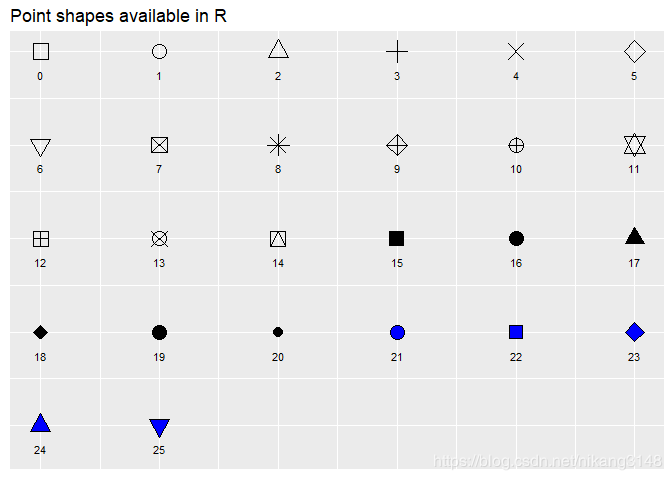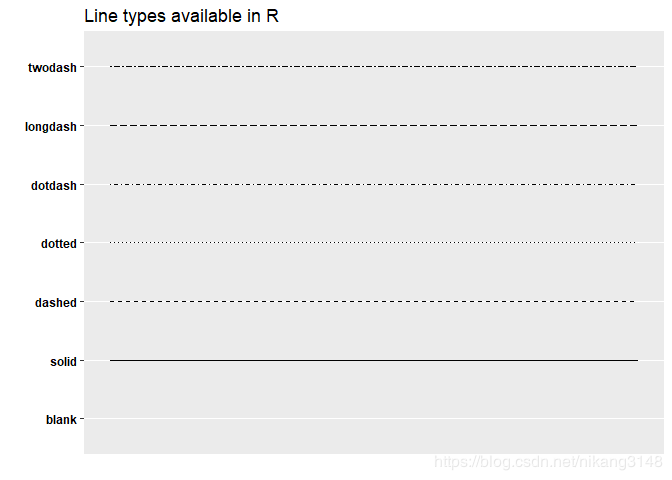ggpubr包绘制符合期刊出版要求图形
提示:
- 阅读本文需要有一定的R语言和ggplot2基础,不熟悉ggplot2语法,可能会存在困难
- 部分代码段用到了管道操作,最好是熟悉tidyverse包,以及阅读过《R for Data Science》
文章目录
- ggpubr包简介
- 预加载包 loading
- 数据分布图 distribution
- 一维散点图 ggstrpchart()
- 箱线图 ggboxplot()
- 小提琴图 ggviolin
- 散点直方图(组合图形)ggscatterhist()
- Q-Q图(是否符合分布)ggqqplot()
- 直方图 gghistogram()
- 概率累积分布图
- 密度曲线图 ggdensity()
- 累积分布曲线图
- Cleveland点线图 ggdotchart()
- 点图 ggdotplot()
- 统计变换图 stat_transform
- 散点图 scatter plot
- 柱状图 ggbarplot()
- 点线图 ggline()
- 饼图(pie)
- 牛眼图(donutchart)
- 气泡图 bublle plot
- 误差图 errorplot
- 特殊数据图 special plot
- 差异表达数据 MA-plot
- 配对比较图 paired data plot
- 绘制表格
- 文字画
- 图形调整
- 图形组合 arrange
- 更改参数
- 格式调整ggpar
- 标签字体
- 对图形进行修饰annotate
- 改变坐标轴尺度xscale(), yscale()
- 改变作图区背景色
- 设置图区边线 border()
- 设置调整调色板
- 主题相关
- 旋转
- 添加元素
- 增加网格线add gridlines
- 增加分面
- 增加文字标签
- 在已有图形上增加辅助统计量se,sd等
- 添加置信区间换图
- 图上添加统计结果
- 添加元素
- 删除元素
- 统计数据输出
- 均值比较
- 分组描述统计desc_statby()
- 元素输出
- 执行ggplot函数
- 图例输出
- 点线形式输出
- 调色板输出get palette
ggpubr包简介
ggplot2 (Hadley Wickham开发)是目前R语言数据可视化的主流。与R基础绘图系统相比,基于grid绘图系统的ggplot2已经在语法理解性上已经进步很多,但是通过ggplot2绘制用于学术杂志的图形,仍然需要较多的绘图函数(或者加载一些写好的模板代码)。为此Alboukadel Kassambara基于ggplot2、ggsci包开发了ggpubr用于绘制符合出版物要求的图形。该包封装了很多ggplot2的绘图函数,并且内嵌了ggsci中很多优秀的学术期刊配色方案,值得学习使用。
安装方法见https://rpkgs.datanovia.com/ggpubr/index.html
- 目前也可以在CRAN上直接安装
- github install
预加载包 loading
需要预加载的包主要是:
- tidyverse
- ggpubr
数据分布图 distribution
分布特征图用于可视化数据的分布是否符合某种分布,将数据点离散分组,通过形状、颜色、大小等图形参数将数据分布差异显示出来。主要图形有:
- 一维散点图(数量少适用) strip chart
- 箱线图 boxplot
- 小提琴图 violin chart
- 散点直方图(组合图形)scatter histogram
- Q-Q图(是否符合分布)Q-Q chart
- 直方图 histo
- 密度曲线图 density chart
- Cleveland点线图 Cleveland’s Dot Plots
- 点图 Dot plot
一维散点图 ggstrpchart()
# x continous
ggstripchart(mpg,x="cyl",y="cty",
color="drv",
fill="drv",
palette="nejm",
shape=21,
size=2,
add=c("boxplot"),# one of “none”, “reg.line”, “loess”
add.params=list(color="black",fill="NA"),
error.plot="errorbar",
title="stripchart \n nejm palette",
# label="drv",
# font.label = list(size=14,face="italic",color="black"),
# label.select="r",
#repel=T,
#label.rectangle=T,
# jitter=0.2,
position=position_jitter(0.2),
ggtheme=theme_bw()
)
#分类变量x
ggstripchart(mpg,x="class",y="cty",
color="drv",
# fill="drv",
palette="nejm",
shape=21,
size=2,
add="mean_sd",# one of “none”, “reg.line”, “loess”
add.params=list(color="drv",fill="NA"),
# error.plot="crossbar",
title="stripchart \n nejm palette",
# label="drv",
# font.label = list(size=14,face="italic",color="black"),
# label.select="r",
#repel=T,
#label.rectangle=T,
jitter=0.5,
position=position_jitterdodge(),
ggtheme=theme_bw()
)
箱线图 ggboxplot()
ggboxplot(mpg, x = "drv", y = "cty",
color = "black",
fill="drv",
palette ="aaas",
width=0.2,
alpha=0.7,
# notch=T,
# remove=c("4")
select=c("f","r"),
order=c("r","f"),
add="jitter", #加散点
add.params = list(shape="drv",color="#00AFBB",alpha=0.6),
# label="fl",
# font.label="bold",
# label.select=list(top.up=10),
# repel=T,
# label.rectangle=T,
bxp.errorbar=T,
bxp.errorbar.width = 0.1,
xlab="drivers",
ylab=expression(speed~(m~s^-1)),
title="AAAS palette",
ggtheme=theme_pubr()
)
小提琴图 ggviolin
ggviolin(mpg,x="class",y="hwy",
# remove=c("4")
select=c("compact","suv","midsize"),
order=c("midsize","suv","compact"),
color = "drv",
fill="NA",
palette ="uchicago",
alpha=0.7, #透明度
linetype=1,
trim=F,
size=1,
width=1, #violin width
draw_quantiles = 0.5, #median value
add=c("jitter","mean"), #加散点
add.params = list(shape="drv",color="drv",alpha=0.6),
error.plot = "errorbar",
# label="fl",
# font.label=c(size=11,color="black","bold"),
# label.select=list(top.up=10),
# repel=T,
# label.rectangle=T,
position=position_dodge(1),
xlab="drivers",
ylab=expression(speed~(m~s^-1)),
title="uchicago palette",
ggtheme=theme_pubr()
)
散点直方图(组合图形)ggscatterhist()
ggscatterhist(mpg,x="hwy",y="cty",
color="drv",
fill="drv",
palette="material",
shape=21,
size=2,
linetype = "solid",
bins=30,
margin.plot="boxplot",
margin.params=list(color="drv",fill="NA"),
margin.ggtheme=theme_light(),
margin.space=F,
main.plot.size=2,
margin.plot.size=1,
title="material palette",
legend="right",
ggtheme=theme_cleveland()
)
Q-Q图(是否符合分布)ggqqplot()
ggqqplot(mpg,x="displ",
color="drv",
palette="locuszoom",
size=2,
shape=21,
add="qqline",
add.params = list(linetype = "solid",size=1,linetype=1),
conf.int=T,
conf.int.level=0.95,
title="locuszoon palette"
)
直方图 gghistogram()
gghistogram(mpg,x="hwy",y="..count..",
color="NA",
fill="drv",
palette = "igv",
size=1,
linetype=1,
alpha=0.5,
bins=30, #柱子个数
binwidth=0.8,
title="igv palette",
xlab="hwy",
ylab="Count",
# add="mean",
add.params=list(size=1.5,linetype=1,color="drv"),
rug=TRUE,
add_density=T,
# label="drv",
# font.label = list(size=14,face="italic",color="black"),
# label.select="r",
#repel=T,
#label.rectangle=T,
position=position_dodge(1)
)
概率累积分布图
ggecdf(mpg,"hwy",
color="drv",palette="npg",
size=2,linetype=1,
ylab="Cumualtive density",
ggtheme=theme_classic2()
)
密度曲线图 ggdensity()
ggdensity(mpg,x="hwy",y="..density..",
color="black",
fill="drv",
palette = "simpsons",
size=1,
linetype=1,
alpha=0.5,
title="density plot \n simpsons palette",
xlab="hwy",
ylab="density",
add="median",
add.params=list(size=1,linetype=1,color="drv"),
rug=TRUE,
# label="drv",
# font.label = list(size=14,face="italic",color="black"),
# label.select="r",
# repel=T,
# label.rectangle=T,
ggtheme=theme_pubr()
)
累积分布曲线图
ggecdf(mpg,"hwy",
color="drv",palette="npg",
size=2,linetype=1,
ylab="Cumualtive density",
ggtheme=theme_classic2()
)
Cleveland点线图 ggdotchart()
ggdotchart(mpg,x="class",y="hwy",
color="drv",
palette="jama",
shape=21,
size=4,
dot.size=2,
sorting="desc", #按照y排序
# add="segments",
add.params=list(size=1,linetype=2,color="red"),
x.text.col=F,
rotate=T,
title="Cleveland's Dot Plots \n jama palette",
xlab="cty",ylab="hwy",
label="model",
label.select="passat",
font.label=list(size=12,face="italic",color="black"),
label.rectangle=T,
repel=T,
position=position_dodge(0)
)
点图 ggdotplot()
ggdotplot(mpg,x="class",y="hwy",
select=c("compact","midsize","suv"),
color="drv",
fill="NA",
palette="jama",
size=1,
binwidth = 0.5,
add=c("violin","mean_sd"),
add.params=list(size=1,color="drv"),
error.plot="errorbar",
title="dotplot \n jama palette",
xlab="cty",ylab="hwy",
label="model",
label.select="passat",
font.label=list(size=12,face="italic",color="black"),
label.rectangle=T,
repel=T,
ggtheme=theme_bw()
)
统计变换图 stat_transform
统计变换图则是在统计变换基础上,进行数据可视化,一般不直接呈现原始数据,多求取数据平均值、方差,显示数据离散及组件差异。主要形式是根据数据是否离散或者连续,进行绘制:
- 散点图 连续x-y,还有分组变量
- 点线图 连续x-y
- 柱状图 x多为分类变量
- 饼图
- 牛眼图
- 气泡图
- 误差图
散点图 scatter plot
ggscatter(mpg,x="cty",y="hwy",
color="drv", #边线颜色
# fill="drv", #填充色
palette = "NPG",
# shape="fl", #点形状
size=3, #点大小
# point=F, #控制是否显示点
rug=T, #可以看y数据分布趋势
title="scatter plot \n NPG palette",
xlab="city speed",
ylab=expression(Highway~speed~(km~h^-1)),
# facet.by="fl",#分面
add="reg.line", #fitting line (reg.line, loess)
add.params=list(color="drv",size=1),
conf.int=T,
conf.int.level=0.95,
# ellipse=T,
# ellipse.level=0.95,
# ellipse.type="t",
# ellipse.alpha=0.3,
# ellipse.border.remove=T,
# mean.point=T,
# mean.point.size=10,
# star.plot=T,
# star,plot.lty=1,
# star.plot.lwd=2,
# label="fl",
# font.label="bold",
# font.family="serif",
# repel=T,
# label.rectangle=T,
cor.coef=T,
# coef.coeff.args=list(method="pearson"),#参考stat_cor()
cor.method="kendall",
# cor.coef.coord=c(20.5,40.5) #标签位置
# cor.coef.size=10,
# ggp=NULL, #添加到已有图
# show.legend.text=FALSE
ggtheme=theme_pubr()
)
柱状图 ggbarplot()
ggbarplot(mpg, x="class", y="cty",
# merge=T,
select=c("compact","suv","midsize"),
# remove=c("suv","pickup"),
# order=c("midsize","compact"),#定义x排序
color="drv",#边线颜色
fill="NA",#映射填充色
palette ="bar plot \n lancet palette",#
size=1.05,
width=0.4, #bar宽度
add=c("mean_sd"),#添加误差线或其它
error.plot = c("upper_errorbar"),#误差线样式
add.params = list(color="drv",size=1.05),
label=T,
lab.col="navyblue",
lab.size=5,
lab.pos="in",
lab.vjust=1.5,
# lab.hjust=0.5,
lab.nb.digits=1,#小数位数
# sort.val="desc",#根据y值排序,但是x需要唯一
# sort.by.groups=F,
# top=2,#只显示最高的2个
position=position_dodge(),
orientation = "vertical",
title="lancet",
xlab="class",
ylab=expression(speed~(m~s^-1))
)
点线图 ggline()
ggline(mpg,x="class",y="hwy",
color="drv",
palette="jco",
linetype="drv",
plot_type="b",#c(b,l,p)
size=1.2,
shape=19,
point.size=3,
# point.color="drv",
title="line chart \n JCO palette",
xlab="class",
ylab="highway speed",
# select=c(""),
# remove=c(),
# order=
add=c("mean_se"),
add.params=list(size=1.1),
error.plot = "errorbar",
# label="model",
#font.label="bold",
#label.select=list(top.up = 10, top.down = 4),
# repl=T,
#label.rectangle=T,
# show.line.label=T,
ggtheme=theme_pubr()
)
饼图(pie)
饼图需要单一数据格式,ggpie不具有变换功能,因为ggplot2中需要极坐标转换。
aggregate(hwy~class,mpg,length)%>%ggpie(x="hwy",
label="hwy",
lab.pos="out",
lab.adjust=1,
lab.font=c(4,"bold","red"),
font.family="serif",
color="white",
fill="class",
palette = "ucscgb",
size=1.2,
title="pie chart \n ucscgb palette"
)
牛眼图(donutchart)
aggregate(hwy~class,mpg,length)%>%
ggdonutchart(x="hwy",
label="hwy",
lab.pos="out",
lab.adjust=0.5,
lab.font=c(size=6,face="italic",color="black"),
font.family="mono",
color="white",
fill="class",
palette="donut chart \n rickandmorty",
size=2
)
气泡图 bublle plot
气泡图用点图直径表示数据大小,可将三维数据二维化。需要格式化数据,ggballonplot没有统计变换功能。
aggregate(hwy~fl+class+drv,mpg,max)%>%
ggballoonplot(x="fl",y="class",size="hwy",
size.range=c(1,10),
shape=21,
color="NA",
fill="drv",
#show.label=T,
#font.label=list(size=12,face="italic",color="black"),
rotate.x.text=F,
title="balloon plot",
ggtheme = theme_pubr()
)
误差图 errorplot
ggerrorplot(mpg,x="class",y="hwy",
desc_stat="mean_sd", #核心参数
color="drv",
palette="gesa",
size=1,
width=0.2,
title="error plot \n gesa palette",
xlab="class",ylab="hwy",
add=c("mean"),
add.params=list(size=1,shape=19,color="drv",fill="white"),
error.plot="errorbar",
ci=0.95,
position=position_dodge(0.8)
)
特殊数据图 special plot
差异表达数据 MA-plot
数据文件至少要包含:
- name: 基因名称
- baseMean: the mean expression of genes in the two groups.
- log2FoldChange: the log2 fold changes of group 2 compared to group 1
- padj: the adjusted p-value of the used statiscal test.
ggmaplot(diff_express[1:1000,], main = expression("Group 1" %->% "Group 2"),
fdr = 0.05, fc = 2, size = 0.4,
palette = c("#B31B21", "#1465AC", "darkgray"),
genenames = as.vector(diff_express[1:1000,]$name),
legend = "top",
top = 20, #筛选显著20个基因
select.top.method="fc", #最大fold
font.label = c("bold", 11), label.rectangle = TRUE,
font.legend = "bold",
font.main = "bold",
ggtheme = ggplot2::theme_bw())
配对比较图 paired data plot
用于配对比较处理前后或者有无处理的差别。
ggpaired(mpg,
cond1="cty",cond2="hwy",
# x="group",y="values", #x为分组变量,y为观测值
id="model",
color="condition",
# fill="condition",
palette="npg",
width=0.5,
point.size=1,
line.size=0.5,
line.color = "gray",
repel=T
)
绘制表格
table1<-ggtexttable(mtcars[1:10,1:6],
theme= ttheme(# "minimal",base_size=10,base_colour="red" #非“default"下自定义无效,
colnames.style=colnames_style(size=15,color="black",
face="bold",fill="grey80",
linewidth=4,linecolor="white"
),
rownames.style=rownames_style(color="blue",face="bold"),
tbody.style=tbody_style(size=10,color="black",face="plain",
fill=c("grey90","white"),#可色板
linewidth=2,linecolor="white",
# hjust=0,x=0.1
#Left:hjust=0, x=0.1 Right:hjust=1, x=0.9
)
)
)
table1
table1%>%table_cell_font(row=5,column = 3,face="bold.italic",size=15)%>%#修改表格单元格字体
table_cell_bg(row=5,column = 3,fill="yellow",color="red",linewidth=8)#修改表格单元格颜色
文字画
ggparagraph(paste(rep("I have a dream",10),collapse=","),
color="red",size=12,face="bold",family="serif",
lineheight=1 #行距
)
text_grob(paste(rep("I have a dream",10),collapse=","),
face = "italic", color = "steelblue",size=20,lineheight=1,family="serif",
rot=45) %>%as_ggplot()
图形调整
图形组合 arrange
p1<-ggscatter(mpg,"hwy","cty",color="drv",add="reg.line",shape=21)+theme_bw()
p2<-ggbarplot(mpg,"class","hwy",fill="drv",width=0.5,
add="mean_sd",add.params = list(color="drv",size=1.2),
position=position_dodge(0.5))
p3<-ggarrange(p1,p2,ncol=2,nrow=1,
widths=c(1,1), #图形宽度
align="h",
labels=list("(a)","(b)"),
vjust=2,hjust=-3,
legend=c(0.5,0.8),
common.legend = F)
p3
更改参数
格式调整ggpar
ggarrange(p1,
ggpar(p1,palette="jco",
# gradient.cols=get_palette("npg",5),#自定义色板
main="main",submain="submain",
# title="title",subtitle="subtitle", 与main一致
caption="caption",
xlab="xlab",ylab="ylab",
font.main=c(size=14,style="bold",color="red"),
font.x=c(size=14,style="bold",color="red"),
font.family="serif",
xlim=c(10,50),ylim=c(15,30),
xscale="none",yscale="none",format.scale = F,
legend="top",legend.title="drivers",font.legend=c(10,"bold","black"),
ticks=T,tickslab = T,
font.ticklab=c(10,"bold","black"),
# font.xtickslab = c(10,"bold","black"),
# font.ytickslab = c(10,"bold","black"),
x.text.angle=45,y.text.angle = 45,
xticks.by = 5,
# yticks.by = 5, #刻度线间隔数值every 5,不能同时xy调整
# rotate=T, #coord-flip()
# orientation = "vertical",#y倒叙
ggtheme=theme_bw()
)
)
标签字体
p1+font(object="ylab",#title,caption,legend.text,xylab,xy.text
size=20,color="red",
face="bold",family="serif") #element_text()参数均可
对图形进行修饰annotate
annotate_figure(p3,
top="Figures Combination",
bottom=text_grob("data source",color="red"),
left="Left label",
right="right label",
fig.lab="Figure 1",
fig.lab.pos="top.left",
fig.lab.size=20,
fig.lab.face = "italic"
)
改变坐标轴尺度xscale(), yscale()
ggarrange(p1,p1+xscale("log2",F))
改变作图区背景色
ggarrange(p1,p1+bgcolor("seagreen2"))
设置图区边线 border()
ggarrange(p1,
p1+border(color="red",size=2,linetype=2))
设置调整调色板
# color_palette("palette_name") #设置color色板
# fill_palette("palette_name") #设置fill色板
ggarrange(p1,
set_palette(p1,"npg"),
change_palette(p1,"npg")
) #更改色板
主题相关
ggarrange(p1,p1+clean_theme()) #去除坐标轴相关内容
ggarrange(p1,p1+theme_pubclean(base_size=15,flip=F)) #去除坐标轴线
ggarrange(p1,p1+labs_pubr()) #对标签进行格式化
ggarrange(p1,
p1+theme_pubr(base_size=15,border=T,base_family = "serif"),
legend="bottom")
ggarrange(p1,
p1+theme_classic2(base_size=20))
旋转
#旋转rotate
p2+
rotate()+ #坐标轴反转,类似corrd_flip()
# rotate_axis_text()
rotate_x_text(angle=180,hjust=.5,vjust=1)+
rotate_y_text(angle=45,hjust=0.5,vjust=0.5) #刻度线文字反转
添加元素
增加网格线add gridlines
p1+theme_pubr()+grids("xy",color="red",size=1,linetype=2)
增加分面
facet(p1,facet.by="cyl",
short.panel.labs = F, # Allow long labels in panels
panel.labs.background = list(fill = "steelblue", color = "steelblue"))
增加文字标签
ggtext(mpg,"hwy","cty",
color="drv",palette="npg",face="bold",family="sans",
label="fl",repel=F,
label.select="r",label.rectangle = T,
show.legend = T,grouping.vars = "displ",
position=position_jitter(0.2),
ggp=p2, #add to p2, or NULL
ggtheme=theme_bw()
)
在已有图形上增加辅助统计量se,sd等
p4<-ggbarplot(mpg, x="class", y="cty",
add="mean_sd",
add.params=list(color="blue"),
width=1
)
add_summary(p4,"mean_se",error.plot="errorbar",
color="red",fill="NA",
group=1,width=0.2,
shape=19,size=2,ci=0.95,
data=NULL,
position=position_dodge(0.8)
)+theme_bw()
添加置信区间换图
p1+stat_chull(aes(color=drv,fill=drv),geom="polygon",alpha=0.2)
p1+stat_stars(aes(color=drv))
p1+stat_conf_ellipse(aes(color=drv,fill=drv),geom="polygon",alpha=0.2)
图上添加统计结果
p1+stat_cor(method="kendall",aes(color=drv),label.x=20) #添加相关分析结果及p-value
p1+stat_regline_equation(aes(group=drv,color=drv),formula=y~x) #添加回归线方程
p2+stat_compare_means(method="anova") #添加ANOVA显著性数值p-value
ggbarplot(mpg,"drv","hwy",add="mean",fill="drv")+
compare_means(hwy~drv,mpg,paired=F,ref.group ="f")%>%
mutate(y.position = c(45, 35))%>%
stat_pvalue_manual(label = "p.adj", label.size=6)#手动添加p-value
添加元素
ggadd(p2,add=c("mean_sd","jitter"),color="drv",fill="drv",group=1,
width=1,shape=21,size=3,alpha=0.6,
jitter=0.2,binwidth=1,dotsize=1,error.plot="errorbar",
ci=0.95,position=position_dodge(1),
p_geom=""
)
删除元素
ggarrange(p1,p1+rremove(object="grid"))
#"xy.grid" for both x and y grids
#"axis" x.axis
#"xylab", "xy.title" or "axis.title" for both x and y axis labels
#"xy.text" or "axis.text" for both x and y axis texts
# "ticks" "x.ticks"
#"legend.title" for the legend title
#"legend" for the legend
统计数据输出
均值比较
compare_means(hwy~1,mpg,mu=100,method="wilcox.test") #wilcox检验或者t.test
## # A tibble: 1 x 8
## .y. group1 group2 p p.adj p.format p.signif method
##
## 1 hwy 1 null model 3.33e-40 3.30e-40 <2e-16 **** Wilcoxon
compare_means(hwy~cyl,mpg,paired=F,method="t.test",ref.group = ".all.") #against all 比较
## # A tibble: 4 x 8
## .y. group1 group2 p p.adj p.format p.signif method
##
## 1 hwy .all. 4 9.28e-15 2.80e-14 9.3e-15 **** T-test
## 2 hwy .all. 6 2.79e- 1 2.80e- 1 0.28 ns T-test
## 3 hwy .all. 8 3.43e-21 1.40e-20 < 2e-16 **** T-test
## 4 hwy .all. 5 5.21e-13 1.00e-12 5.2e-13 **** T-test
compare_means(hwy~cyl,mpg,paired=F,method="wilcox.test",ref.group = NULL) #pairwise比较
## # A tibble: 6 x 8
## .y. group1 group2 p p.adj p.format p.signif method
##
## 1 hwy 4 6 3.30e-16 1.60e-15 3.3e-16 **** Wilcoxon
## 2 hwy 4 8 1.47e-24 8.80e-24 < 2e-16 **** Wilcoxon
## 3 hwy 4 5 8.18e- 1 8.20e- 1 0.81763 ns Wilcoxon
## 4 hwy 6 8 2.37e-13 9.50e-13 2.4e-13 **** Wilcoxon
## 5 hwy 6 5 9.80e- 4 2.30e- 3 0.00098 *** Wilcoxon
## 6 hwy 8 5 7.56e- 4 2.30e- 3 0.00076 *** Wilcoxon
compare_means(hwy~cyl,mpg,paired=F,method="t.test",ref.group = "4") #against参考组pairwise比较
## # A tibble: 3 x 8
## .y. group1 group2 p p.adj p.format p.signif method
##
## 1 hwy 4 6 2.67e-16 5.30e-16 2.7e-16 **** T-test
## 2 hwy 4 8 9.60e-38 2.90e-37 < 2e-16 **** T-test
## 3 hwy 4 5 9.26e- 1 9.30e- 1 0.93 ns T-test
compare_means(hwy~cyl,mpg,paired=F,method="anova",ref.group=NULL) #方差模型
## # A tibble: 1 x 6
## .y. p p.adj p.format p.signif method
##
## 1 hwy 9.98e-44 1.00e-43 <2e-16 **** Anova
compare_means(hwy~cyl,mpg,paired=F,method="kruskal.test") #非参检验
## # A tibble: 1 x 6
## .y. p p.adj p.format p.signif method
##
## 1 hwy 4.86e-32 4.90e-32 <2e-16 **** Kruskal-Wallis
compare_means(hwy~cyl,mpg,paired=F,ref.group = "4",group.by="drv") #分组pairwise比较
## # A tibble: 5 x 9
## drv .y. group1 group2 p p.adj p.format p.signif method
##
## 1 f hwy 4 6 5.87e-14 2.90e-13 5.9e-14 **** Wilcoxon
## 2 f hwy 4 8 1.01e- 1 2.00e- 1 0.10 ns Wilcoxon
## 3 f hwy 4 5 3.27e- 1 3.30e- 1 0.33 ns Wilcoxon
## 4 4 hwy 4 6 2.03e- 7 6.10e- 7 2.0e-07 **** Wilcoxon
## 5 4 hwy 4 8 1.50e-11 6.00e-11 1.5e-11 **** Wilcoxon
compare_means(hwy~cyl,mpg,paired=F,ref.group = ".all.",group.by="drv") #分组pairwise比较
## # A tibble: 9 x 9
## drv .y. group1 group2 p p.adj p.format p.signif method
##
## 1 f hwy .all. 4 6.88e-5 4.10e-4 6.9e-05 **** Wilcox~
## 2 f hwy .all. 6 8.55e-7 6.80e-6 8.6e-07 **** Wilcox~
## 3 f hwy .all. 8 2.66e-1 1.00e+0 0.266 ns Wilcox~
## 4 f hwy .all. 5 4.24e-1 1.00e+0 0.424 ns Wilcox~
## 5 4 hwy .all. 4 7.11e-8 6.40e-7 7.1e-08 **** Wilcox~
## 6 4 hwy .all. 6 3.48e-1 1.00e+0 0.348 ns Wilcox~
## 7 4 hwy .all. 8 3.34e-5 2.30e-4 3.3e-05 **** Wilcox~
## 8 r hwy .all. 6 3.26e-2 1.60e-1 0.033 * Wilcox~
## 9 r hwy .all. 8 4.56e-1 1.00e+0 0.456 ns Wilcox~
compare_means(hwy~cyl,mpg,paired=F,ref.group = NULL,group.by="drv")
## # A tibble: 10 x 9
## drv .y. group1 group2 p p.adj p.format p.signif method
##
## 1 f hwy 4 6 5.87e-14 5.90e-13 5.9e-14 **** Wilcoxon
## 2 f hwy 4 8 1.01e- 1 4.00e- 1 0.1007 ns Wilcoxon
## 3 f hwy 4 5 3.27e- 1 7.10e- 1 0.3267 ns Wilcoxon
## 4 f hwy 6 8 7.45e- 1 7.40e- 1 0.7446 ns Wilcoxon
## 5 f hwy 6 5 1.40e- 3 8.40e- 3 0.0014 ** Wilcoxon
## 6 f hwy 8 5 2.36e- 1 7.10e- 1 0.2357 ns Wilcoxon
## 7 4 hwy 4 6 2.03e- 7 1.60e- 6 2.0e-07 **** Wilcoxon
## 8 4 hwy 4 8 1.50e-11 1.40e-10 1.5e-11 **** Wilcoxon
## 9 4 hwy 6 8 1.50e- 6 1.00e- 5 1.5e-06 **** Wilcoxon
## 10 r hwy 6 8 1.23e- 2 6.20e- 2 0.0123 * Wilcoxon
分组描述统计desc_statby()
desc_statby(mpg,"hwy",c("drv","cyl"),ci=0.95)
## Warning in stats::qt(ci/2 + 0.5, data_sum$length - 1): 产生了NaNs
## drv cyl length min max median mean iqr mad sd se
## 1 4 4 23 20 28 25.0 24.60870 2.50 1.4826 2.5359081 0.5287734
## 2 4 6 32 17 25 19.0 19.50000 3.00 2.9652 2.8960485 0.5119539
## 3 4 8 48 12 23 17.0 16.35417 3.00 1.4826 2.2168560 0.3199756
## 4 f 4 58 24 44 29.0 30.46552 2.75 2.9652 4.0271688 0.5287932
## 5 f 5 4 28 29 29.0 28.75000 0.25 0.0000 0.5000000 0.2500000
## 6 f 6 43 17 29 26.0 25.06977 2.00 1.4826 2.1973507 0.3350928
## 7 f 8 1 25 25 25.0 25.00000 0.00 0.0000 NA NA
## 8 r 6 4 24 26 25.5 25.25000 1.25 0.7413 0.9574271 0.4787136
## 9 r 8 21 15 26 20.0 20.19048 6.00 4.4478 3.4149531 0.7452039
## ci range cv var
## 1 1.0966089 8 0.10304927 6.4308300
## 2 1.0441368 8 0.14851531 8.3870968
## 3 0.6437079 11 0.13555298 4.9144504
## 4 1.0588901 20 0.13218777 16.2180883
## 5 0.7956116 1 0.01739130 0.2500000
## 6 0.6762447 12 0.08764942 4.8283499
## 7 NaN 0 NA NA
## 8 1.5234802 2 0.03791791 0.9166667
## 9 1.5544680 11 0.16913683 11.6619048
元素输出
执行ggplot函数
p1+geom_exec(geom_point, data = mpg, #geom_** functions
x = "hwy", y = "displ", size = "cyl",)
p1+geom_point(aes(hwy,displ,size=cyl),data=mpg)
图例输出
#get legend
p1%>%get_legend()%>%as_ggplot()
点线形式输出
#show point and line type
show_point_shapes()
show_line_types()
调色板输出get palette
get_palette("npg", 3) #生成色板中3个过渡色
## [1] "#E64B35FF" "#4DBBD5FF" "#00A087FF"
